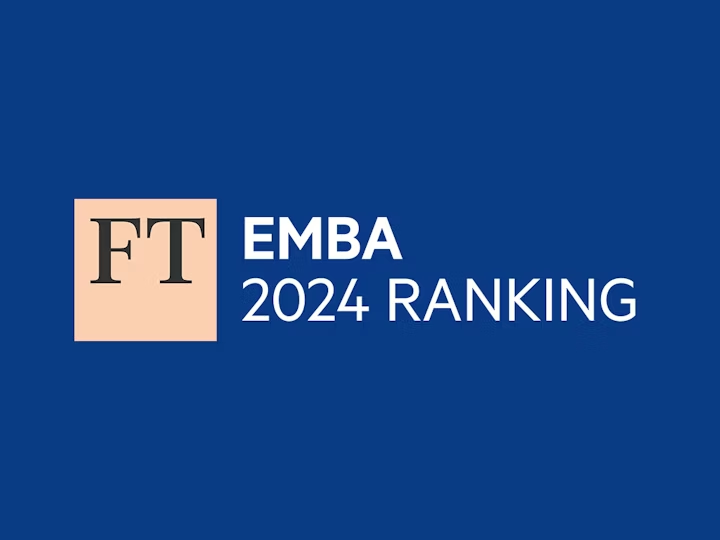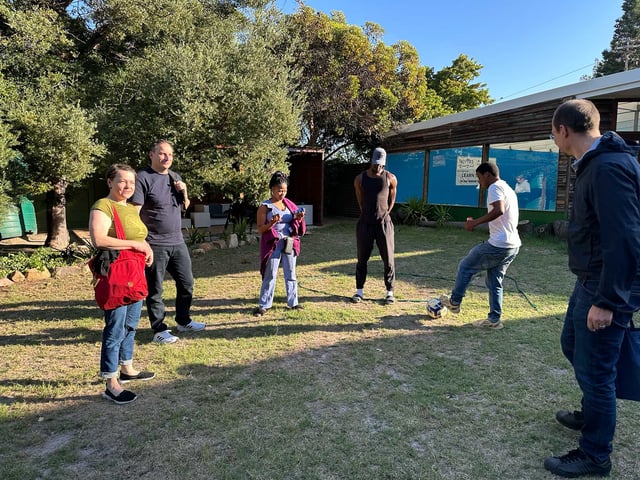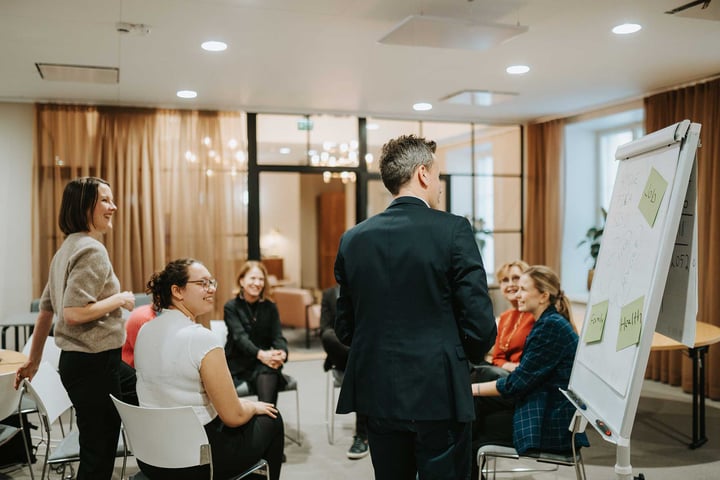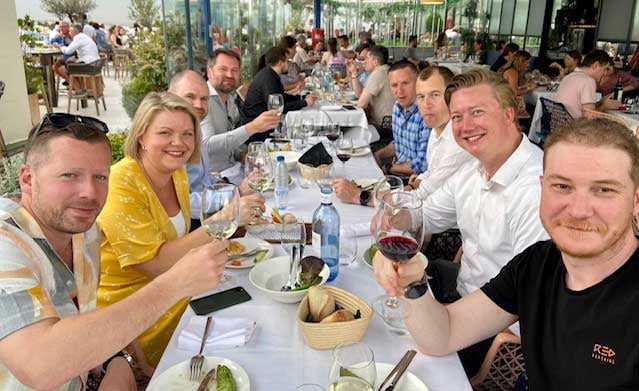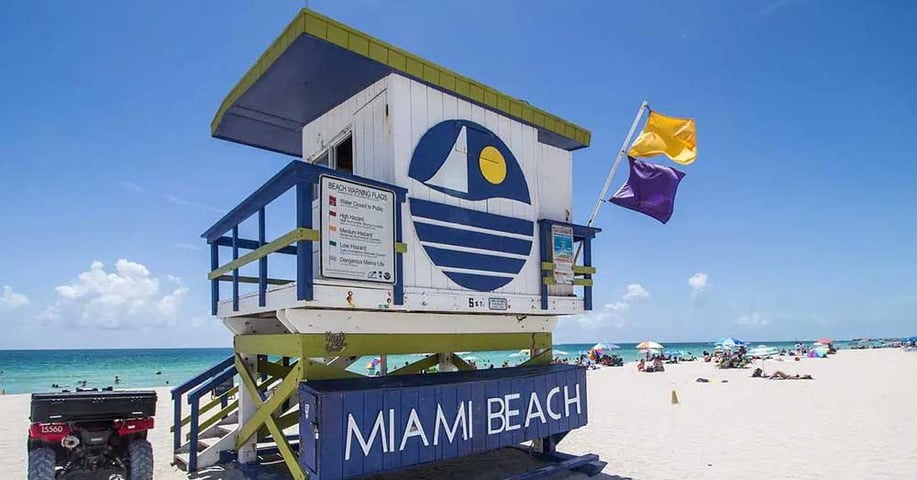Many Executive MBAs have a strong focus on corporate structures and large corporations. The Reputation and Responsibility module of Henley’s Executive MBA Global takes the students to South Africa, where they get to work with South African NGOs and directly impact organisations that are grappling with critical social issues.
This unique study trip is an impactful experience that improves the students’ integrative thinking and pushes the students outside their comfort zones. The journey also expands their understanding of the wider global context of their business and allows them to apply classroom learnings in real-life cases.

Immersion trips to South Africa and the US are a core part of Henley’s Global EMBA, bringing exposure to new businesses, markets and challenges from different parts of the world.
I had the biggest pleasure to sit down with two of our current Executive MBA Global students, Minna Luomalahti and Tommi Vigman, for a chat about their journey to Henley and their study visit to Cape Town, South Africa in April. The trip immersed them into the world of the local NGOs, with the aim of securing a financially better future for them.
Journey to Henley Business School & The Henley Executive MBA Global
Tell us a bit about yourselves and your journey to Henley’s EMBA
Minna Luomalahti (M): I am Minna Luomalahti, a grandmother of two, HR Director and an EMBA student at Henley. I have been working with an organisation called Koskisen, an international wood processing specialist, for 30 years now. During this time, I have had my hands in numerous different functions:
I began my career as a student in the production side and since then I have been in several leadership positions, holding hats from production manager to project manager and marketing manager to my current HR Director position for the past 7 years.
The reason I am sitting here now is that I still want to develop myself. I want to improve leadership in our organisation and to spark others to look for wider perspectives, to acquire new skills; the end-goal of all this being, of course, that of creating more value for our customers.
I ended up doing Henley's EMBA Global as it offered an international degree, which interested me. I also spoke with some friends who backed up my choice.
Tommi Vigman (T): I am Tommi Vigman. 
I have worked around 20 years in the IT sector within big corporations. As my kids reached a certain age, and after having a 10-year break from active studying, I decided it was the right time to embark on the EMBA track, something I had been thinking about for a few years already.
I believe in life-long learning, and I chose Henley because it was by far the most international degree on offer: the global cohorts, study trips, international faculty etc.; it has been a good combo.
Why was it important that the EMBA was international?
T: I have studied international management as a minor at university, I have done exchanges abroad in Singapore and in the Netherlands and I have always worked in big corporations, which are international by nature. Therefore, I saw it essential that the EMBA could build on my previous experience and international career.
M: At Koskisen we sell products to 70 counties and have presence in 9 different countries, however, production takes place mainly in Finland. The benefit of having an international cohort is that you are exposed to more, varied, perspectives.
The study trips take you to new places and offer insights to the global business environment. With Henley you also get access to international research, and you are taught by an international faculty.
What about the study trips, did they impact your choice?
T: The study trips were a plus but did not affect my decision-making. I see them, however, bringing a lot of value to the programme, both this and the trip to the US, where we had the opportunity to dive into the start-up scene of North America.
M: For me too, knowing the destinations of the immersion trips did not affect my choice of EMBA programme. However, I wanted to widen my perspectives, in which the study trips play a big role.
Immersion Trip to South Africa, April 2024
Which South African NGOs did you work with?
M: I was part of a group that worked with an NGO called Mamelani, in Cape Town.  They support young around 18-year-old adolescents become independent, for example, after leaving an orphanage. This can be anything from finding an apartment, a job, to getting a driving license.
They support young around 18-year-old adolescents become independent, for example, after leaving an orphanage. This can be anything from finding an apartment, a job, to getting a driving license.
Mamelani's purpose is to help the young adults find opportunities in life, and they do this by applying a coaching approach. Mamelani also helps, mainly women, with health-related matters, so that they know how to take care of themselves, make healthy food etc. I found this to be a unique concept.
T: Our group worked with the Community Chest of the Western Cape, a 96-year-old organisation. Our aim was to help the NGO stay relevant for the next 100 years from now. The Community Chest of the Western Cape works between the NGOs and the different funding and governmental organisations, financially supporting and educating the other South African NGOs. Overall, a very interesting organisation.
The South Africa study trip is part of the Reputation and Responsibility module of the EMBA programme. How did you work on your cases throughout the course?
T: Prior to our travels, we held a virtual meeting with the NGO where we learned about their work and the business case, and what they needed our help with. Our group prepared a quantitative survey and planned interviews that we would conduct during the trip. Before travelling, we continued to further our understanding of the organisation, South Africa and the NGO market.

We had planned and prepared well for the trip, but as it happens in nearly all projects, there will be changes along the way. Once in Cape Town, we interviewed many stakeholders of the NGO; leaders, board members, funders, and charity organisations, and formed a report with our findings and recommendations.
M: Before travelling to South Africa, we began to study Mamelani’s case and held Teams meetings with them. This was essential to fully understand it and to find a common language, so to speak, with the organisation.
We also conducted a virtual survey with the stakeholders whilst still in Finland, and we used the results from it to plan the interviews that were to be held face-to-face in Cape Town. During the evenings in South Africa, we analysed and drew conclusions from the interview data and worked on a presentation about our findings, that each group presented to the NGOs at the end of the trip. The schedule was tight, and we had to work very quickly.
Once we returned to Finland, we continued to work on the case for about two more weeks. We will also continue to hold Teams meetings with Mamelani.
Both EMBA groups formed an emotional bond with the NGOs and have committed to staying in touch with them and learning how they have found our recommendations.
What was the experience like, seeing the South African reality?
T: Eye-opening. This was the first time I saw a society that was the complete opposite to what we have in Finland. The drastic differences in people’s wealth and quality of life and seeing the two ends of the society so close to each other, were shocking to see.
Youth unemployment rate stood at around 60% and the overall unemployment rate was around 30%.
M: The trip opened my eyes on a number of things. In the Nordic countries, we pay taxes, and we rely on the government to take care of us, which provides a certain level of stability and tranquility. In South Africa, the NGOs do the work that here in Finland is funded by taxes.
 Seeing people’s struggles gave me this uncomfortable sense of privilege, of having the life that I have, whilst others face daily challenges just to get by.
Seeing people’s struggles gave me this uncomfortable sense of privilege, of having the life that I have, whilst others face daily challenges just to get by.
In Finland, we all have opportunities, and I have to say that I happily pay my taxes.
T: It was surprising to learn how the NGOs work and what an integral role they hold in the society. In Finland, everyone pays tax, whereas in South Africa only a fraction of the society accounts for most of the personal income tax.
There are around 250 000 NGOs in South Africa, and both companies and individuals are funding them actively. The employees at the Community Chest of the Western Cape NGO were also not volunteers but full-time hired employees, and the board members of the organisation were high calibre, comparable to any big corporations.
So, the society is built very differently than here in Northern Europe.
M: Mamelani was a smaller organisation, so perhaps the nature of the employees was more comparable to social workers here in Finland. They really put their heart into the work.
What did you learn from working with the NGOs?
M: We worked very closely in teams in Cape Town. Days were intense and long, so it was wonderful to learn how different individuals were able to work together and support each other.
Also, seeing a different kind of society, being exposed to all its diversity, deepened my understanding of things, and helped me see how I can make a difference, whether it is by creating strategy or bringing my outside point of view.
It is nice to see that you can make an impact, but as we all know, change does not happen overnight.
Do you feel that you were able to make an impact?
T: I think we found good answers to their main questions of our case, which concerned the NGO’s stakeholder reputation and the uniqueness of their value proposition; the latter of which we found to be truly unique.
Was the study trip experience impactful?
M: Impact is a strong yes. It was great to learn about the history of South Africa. And perhaps the most impactful outcome of this experience was to gain perspective to my reality and country; how truly equal and safe place Finland is.
But it was also impactful to see how people, who had faced tremendous struggles in their lives, were able to hold on to the positivity and hope.
I would consider going back to South Africa to work as a volunteer.
T: I would say that the experience was thought-provoking.
How would you describe the value the study trips have for the overall programme?
M: They certainly bring value to the programme and have enhanced my critical thinking. They have given the opportunity to work in previously unfamiliar contexts and environments that challenged me in a new way.
T: The study trips were the two highlights of the EMBA programme. I had the chance to see and work in new contexts. I have always worked in big corporations, so the start-up scene in the US was also something refreshingly new.
M: The trips gave us experiences that we would never experience as a tourist, a sort of insider’s look to the local life if you will. Also, studying with the cohorts from Denmark and the UK taught me a lot about intercultural teamwork.
Photos are taken by Henley EMBA students.
